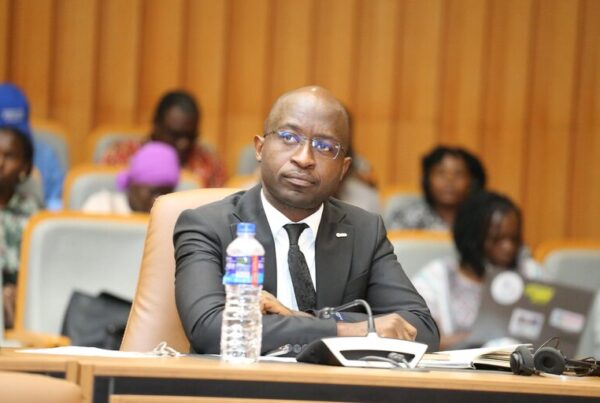Africa and the rest of the world commemorate the Day of the African Child (DAC) today June 16, 2016 with the theme, “Conflict and Crisis in Africa: Protecting all Children’s Rights”. The DAC was instituted in 1991 by the Organization of African Unity (now the African Union) to celebrate the achievements seen across Africa in policies, activities, and agendas that contribute towards the welfare of children. It is an opportunity to inspire action towards addressing challenges faced by African children today.
In recent years, significant strides have been made towards the advancement of children’s rights in Africa. November 2015 marked the 25th anniversary of the Adoption of the African Charter on the Rights and Welfare of the Child (ACRWC), and the African Committee of Experts on the Rights and Welfare of the Child has announced the “Africa’s Children Agenda 2040” to be adopted by the Committee. The Agenda will be aimed at presenting measurable goals that the Member States of the African Union can commit themselves to, which would promote and protect children’s rights in accordance with the ACRWC. In an assessment of the contribution of the ACRWC to the protection of children’s rights 25 years after the adoption of the Charter, studies were presented to the African Committee at its 25th Anniversary Conference that showed commendable developments. Civil birth registration systems have been enhanced across the continent, giving newborns the right to a legal identity and nationality; there has been a significant reduction in HIV mother-to-child transmissions in several countries, and the number of out-of-school children has dropped by 5.5 million children from 2004 to 2014 (UNESCO Institute for Statistics).
Yet, much progress is needed to overcome the challenges children currently face in several parts of the continent. Armed conflict is one of the major barriers affecting children’s development in Africa. Conflict-afflicted regions, such as those in Mali, South Sudan, Libya, and the Democratic Republic of Congo, pose both direct and indirect threats to children’s wellbeing. Young lives are interrupted with violence as children are recruited to be child soldiers. Armed conflict is associated with a decline in access to education and health care, and the heightened risks of displacement, physical dangers, and sexual abuse. In some countries political tensions and protests adversely affect children’s daily lives. In reaction to arrests, expulsions from schools and injuries faced by children in Burundi over the past year, Leila Gharagozloo-Pakkala, the UNICEF Regional Director for Eastern and Southern Africa, expressed concern over the fact that “more than 300 children have been expelled and 2 have reportedly been injured by gunfire during protests”.
In addition to armed conflict, increased educational enrollment needs to be further acted upon. Although there has been a reduction in out-of-school children in the past decade, a 2015 UNESCO report shows that 1 in 11 children is out of school, totaling 59 million children in 2013, half of which (that is about 30 million children) live in sub-Saharan Africa.
Amidst the above concerns, IHRDA, as a key player on the continent, is committed to promoting and defending the rights and welfare of children in Africa. In this light, we shall continue to:
- Provide technical support to the ACERWC in its invaluable efforts to ensure the wellbeing of all children in Africa;
- Undertake strategic children’s rights litigation and advocacy before domestic, sub-regional and regional mechanisms, as we are currently doing in support of children in Kenya, Malawi and Cameroon;
- Build the capacity of State and non-State actors across the continent to effectively use the African Children’s Charter and engage with the Committee.
Further, we encourage State Parties and CSOs to equally take action towards protecting children and promoting their rights and freedoms. In particular, we urge States that have not yet ratified the African Children’s Charter to endeavor to do so. We call on State Parties to consider the recommendations and decisions of ACERWC as positive obligations towards which they must act, and to take steps to harmonize national laws and policies with the Charter.



